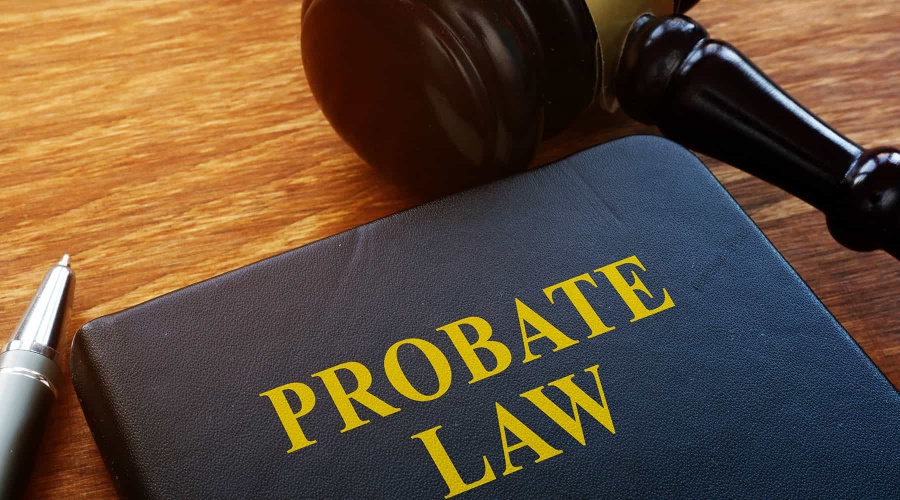Probate is the process of handling debts and assets that are left behind by a deceased person. Having a will can go a long way in assisting bereaved family members deal with the aftermath of a death, which is why it’s so strongly recommended. However, people sometimes never get to working on their will for a variety of reasons.
Getting Through Probate Court: What is the Process?
The process of probate involves a few basic steps:
- Determining and swearing in an executor
- Notifying the public of the death
- Inventorying property and assets
- Distributing assets to beneficiaries and paying debts
1. Choosing the Executor
When a person dies, an executor takes over management of all of the properties, finances, assets and debts that have been left behind. This executor is either named in a will or appointed by a judge after the person has died. The latter often happens in cases of unexpected death or other situations when there was no will finalized.
If the deceased died without a will, or the will doesn’t specify the executor for whatever reason, this person will be named by the court. There are also cases when an executor is named, but that person unfortunately dies before they are needed for probate court. In such cases, the court is often willing to appoint a volunteer family member for the job. When the executor has been decided, they will take an official oath of office and be sworn in.
2. Notifying the Public of a Death
When someone dies, it’s important for the public to be notified. This doesn’t necessarily mean friends and family. It refers to anyone who could be invested in the estate of a deceased person, such as creditors. Death notices are commonly published in local papers or websites to allow creditors time to file claims against the estate. They will do this to attempt to get payments on debts that the executor might not even be aware exist. However, one negative of this process is that it makes the estate’s affairs public record, which might infringe on privacy. This doesn’t matter to everyone, but many view it as a major disadvantage of going through probate court.
3. Asset Inventory
It’s the duty of the executor to get the deceased’s final affairs in order. This is often a confusing and stressful process, which is another reason that having a will is so important. The executor must gather information and file paperwork with the local probate court to show all properties, debts, bank accounts and any other important assets, such as boats or automobiles. It’s crucial for the executor to be aware of all assets and debts to avoid any loose ends coming into play later. It can take up to a year to fully investigate and discover all assets during the probate process.
4. Asset Distribution
When everything is organized, the beneficiaries are finally able to receive the assets that were left to them. However, debts and taxes must also be paid. If a deceased person leaves assets to family members in their will but dies with an incredible amount of debt, then the executor may have to sell off properties, valuable jewelry, cars or other items to pay off the debt. This may or may not leave enough assets behind to equal the amount described in the will. Things don’t always go as planned, especially when people die unexpectedly. However, if everything is handled appropriately, the executor should be protected against any claims that arise far after the estate has been handled. After a certain amount of time passes and the public has been notified of the death, creditors can no longer make a claim against the deceased.
Avoiding Probate Court: Can You Prepare Your Estate in Advance?
There is a lot you can do if you want to help your loved ones avoid probate court after your death. An Orange County probate attorney at the Citadel Law Corporation can bring to your case more than 25 years of experience.
1. Joint Property Ownership
If you and another person own property together, your spouse will not have to go through probate court after your death. You can do set this up by getting joint tenancy with rights of survivorship. Another method is to choose tenancy by entirety. This is specifically for married couples. Lastly, certain states allow the option of choosing community property with right of survivorship. California is one of these states. This is simply another method for creating the same outcome. If a spouse dies, the surviving spouse automatically takes ownership of the estate without having to go through probate court.
2. Giving Property Away
It might seem a bit out there to give your property away, but if you’re in a situation where you know the end of your life could be near, it might be a good idea. Giving your home to a trusted loved one will help your family avoid probate court after you pass on.
3. Revocable Living Trusts
Estates held in trust avoid the probate process, which is why many consider this a desirable option. The trustee is able to simply transfer the assets to beneficiaries without going through probate court.
4. Accounts that Pay on Death
It’s possible to make your bank accounts payable on death, which allows you to list a beneficiary who can take control of your funds after you become deceased. You can do this with security and vehicle registrations as well. Some states even allow you to do it for property.
For more information about the probate process, please contact Citadel Law Corporation today.






